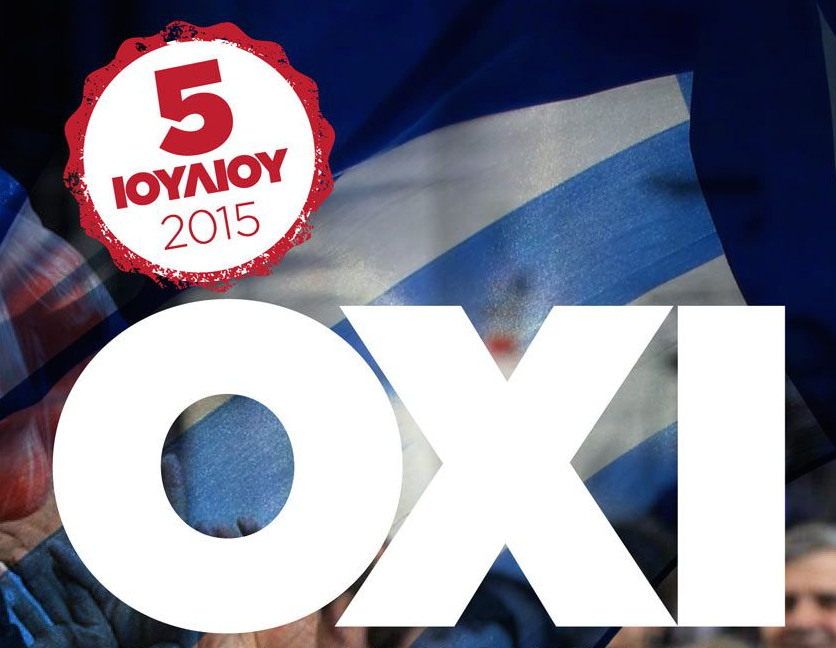The “No” has won a landslide victory in Greece´s referendum on the draft agreement presented by “The Institutions” on 25 June, with more than 61% of the votes cast. Greece’s governing party, Syriza, had strongly campaigned for the “No” and two-thirds of the Greeks who went to the polls on Sunday backed them up.
A NO vote is a victory for Prime Minister Tsipras, as he made the case for the anti-austerity camp by saying that “on Sunday, we are not simply deciding to remain in Europe – we are deciding to live with dignity in Europe.” Mr. Tsipras has also adamantly rejected any allegation that this vote will mean a “No” to reforms and a “No” to remaining in the Eurozone. He reiterated his position soon after the first results were in with a myriad of tweets, all saying pretty much the same thing: “The Greek people made a historic and brave choice. Their response will alter the existing dialogue in Europe.” He went on to say in a televised address that “as of tomorrow, Greece will go back to the negotiating table and our primary priority will be to reinstate the financial stability of the country.”
Before the referendum, Mr. Tsipras hinted that he may indeed quit his job if the referendum he called for goes against him. Luckily his gambled paid off as voters backed its call to reject a compromise with international creditors.
The referendum, the first one in Greek modern history not to concern the form of government, was marred with controversy even before the first vote was cast. First, it was the PASOK opposition party which said that the proposed referendum would be unconstitutional, as the Greek constitution does not allow for referendums on fiscal matters. Then came the European Commission objecting the timing of the popular vote, stressing that it should have been held to allow sufficient time before the 30 June deadline. Following on that, the Council of Europe said that the Greek referendum did not met European standards as voters were not given a two-week period to think it through and make up their mind.
As results were known, an ebullient Mr. Tsipras sounded far more conciliatory than before saying that “the mandate you’ve given me does not call for a break with Europe, but rather gives me more negotiation strength. “ On the other side of the aisle, ominous statements appear to be the norm. Sigmar Gabriel, deputy German chancellor was the first to sound the alarm, stressing that Mr. Tsipras had “torn down the last bridges on which Greece and Europe could have moved towards a compromise.” Jeroen Dijsselbloem picked up the baton and warned that “this result is very regrettable for the future of Greece. For recovery of the Greek economy, difficult measures and reforms are inevitable.”
Much like Mr. Dijsselbloem, the entire Eurozone knows that Greece has now entered uncharted waters. This political uncertainty spurred by Sunday’s vote will be discussed in an emergency summit of Euro leaders to be held on 7 July in Brussels.


